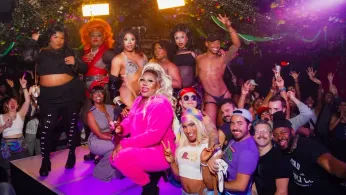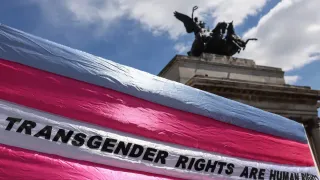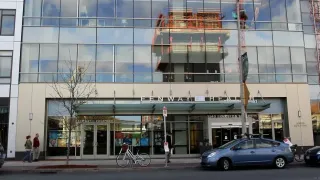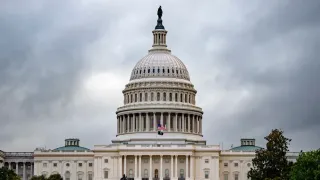
10 hours ago
San Francisco Drag Landmark Oasis Announces Closure, Marking End of an Era for LGBTQ+ Nightlife
READ TIME: 3 MIN.
San Francisco’s LGBTQ+ community is preparing to bid farewell to Oasis, a cornerstone of the city’s drag and nightlife culture, after the venue announced it will close permanently on January 1, 2026 . The announcement, made on July 21, has sent ripples through the Bay Area and beyond, as performers and patrons alike reflect on the club’s legacy and what its loss means for queer spaces in the city.
Founded in 2015 in the heart of San Francisco’s SoMa district, Oasis quickly became famous for its bawdy drag shows, cabaret nights, and commitment to fostering a welcoming, affirming environment for all members of the LGBTQ+ community . Over the past decade, it has played host to countless drag icons, emerging talent, themed dance parties, and community fundraisers, earning a reputation as a beacon of queer joy and expression.
Oasis was co-founded by drag star D’Arcy Drollinger, who envisioned the venue as a space that would bring together the city’s diverse LGBTQ+ population while elevating the art of drag . The club’s programming has consistently centered drag culture, from high-camp parodies and glamorous pageants to experimental new works and variety shows. It has also served as a stage for major events during San Francisco Pride and other key moments in the city’s LGBTQ+ calendar.
Over the years, Oasis became a launchpad for local talent and a must-visit stop for touring performers. Its stage has featured internationally renowned drag artists as well as up-and-coming queens, kings, and nonbinary performers. Community members often credit the club with providing a supportive, creative environment where artists could develop their craft and connect with fans .
The closure of Oasis is widely viewed as a significant blow to San Francisco’s queer nightlife. The city, long recognized as a haven for LGBTQ+ individuals, has seen several beloved venues shutter in the past decade due to rising rents, shifting demographics, and the lingering economic impacts of the COVID-19 pandemic . The loss of Oasis comes at a time when many in the community are calling for greater investment in preserving LGBTQ+ spaces, which remain vital for visibility, safety, and cultural continuity.
Patrons and community leaders have expressed deep sadness at the news, highlighting Oasis’s role not only as a nightlife destination but also as a center for mutual aid, solidarity, and celebration. The venue hosted fundraisers for queer causes, memorial events, and gatherings in response to political developments, underscoring its place as a community anchor .
The story of Oasis reflects broader trends affecting LGBTQ+ nightlife across the United States. In many cities, queer bars and clubs face economic pressures, gentrification, and changing patterns of socialization, with some advocates warning of the erosion of safe spaces for LGBTQ+ people, particularly for transgender individuals and communities of color . While digital platforms and alternative venues have emerged in response, physical gathering places remain crucial for fostering connections and affirming identities.
Local activists and nightlife historians have pointed to the importance of sustaining queer cultural institutions amid these challenges. “Oasis was more than a club—it was a living archive of drag, a classroom for new performers, and a family for so many people who needed a place to belong,” said one longtime performer in an interview with the Bay Area Reporter .
As the closure date approaches, Oasis is expected to host a series of farewell events, honoring the performers, staff, and patrons who have shaped its story. The club’s owners and community partners have encouraged people to share memories and celebrate the venue’s impact, emphasizing that while the physical space may be closing, its legacy will endure in the spirit of San Francisco’s vibrant LGBTQ+ scene .
For many, the end of Oasis represents not only a loss but also a call to action: to support remaining queer spaces, advocate for affordable and inclusive venues, and continue building the kind of community that Oasis embodied for the past ten years.






